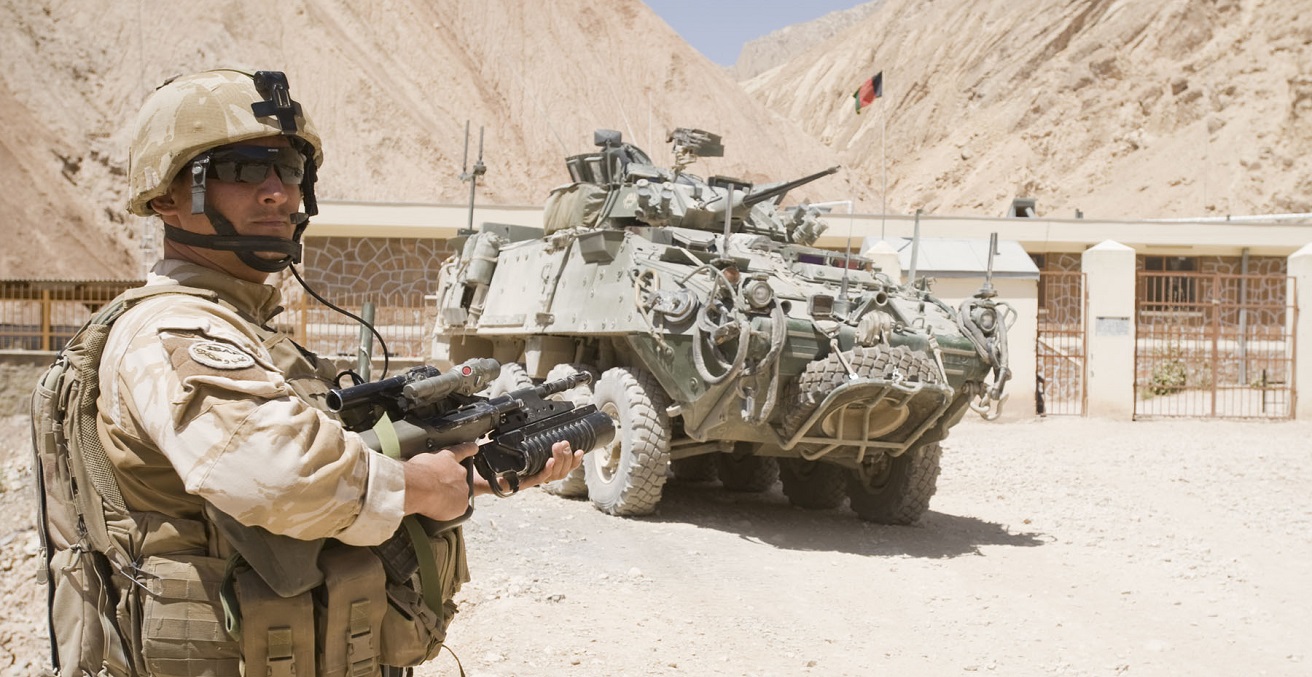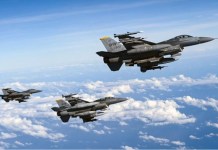With no intra-Afghan peace deal in sight, the existing fault lines between Pakistan, Afghanistan, and the United States — the three key players to the peace process — seem to widen.
At the inaugural session of the Pak-Afghan bilateral dialogue, Pakistan’s Foreign Minister Shah Mahmood Qureshi reiterated Pakistan’s “honest” and “sincere” role in the Afghan Peace Process amid reports of the Afghan President Ashraf Ghani’s visit to Washington.
Calling it a “shared responsibility”, Qureshi took a relentless tone while shrugging off “Pakistan’s responsibility” if things go wrong in the Afghan peace process.
“If the objective of going to Washington is starting a new blame game and holding Pakistan responsible for all the ills [in Afghanistan] and the lack of [progress in the peace] process, then it will not help,” he said.
- WATCH: Russian Su-30 Fighter Forces F-35 Stealth Jets To Retreat In Their ‘First-Ever Encounter’
- Despite World’s Biggest Navy, Why China Will Struggle To Match Indian Submarines In The Indo-Pacific?
Amid reports of a growing rift between the Afghan government and Pakistan, Qureshi stressed upon the multiple meetings where Afghan leaders from “every ethnic group” had been invited to Islamabad to send the clear message that Pakistan wanted to engage with all ethnic communities and leaders “who matter and are important for peace and reconciliation”.
The EurAsian Times earlier reported how the Foreign Minister had lambasted the Afghan National Security Adviser Hamdullah Mohib for his insulting remarks against the country.
Pakistan’s Dilemma
A complete US withdrawal had put Pakistan in a difficult spot with a stalemate in negotiations at both ends.
Amid accusations of mischievous elements instigating trouble in the bordering area between Pakistan and Afghanistan, Pakistan’s foreign minister assuaged the Afghan attendees that Pakistan is a friend and remains committed to building bridges instead of “sowing seeds of dissent”.

“Trust us when we say that a peaceful and stable Afghanistan is in Pakistan’s interest,” he added.
Qureshi talked about changing realities with an increase in violence and the scale of militant activity and admitted to the “possibility of a civil war” in the absence of a peace settlement.
Pakistan is wary of a powerful Taliban expanding its footprint in the bordering state. A Taliban-led government is likely to pry upon Pakistan’s instability and challenge its national security.
“I, as the elected representative of Pakistan, do not want to see ‘Talibanisation’ of Pakistan,” Qureshi said, dismissing the accusations that Pakistan is not doing enough to contribute to the Afghan Peace Process and have a hidden agenda in bringing Taliban to power.
A Hasty Exit?
In light of the US decision to withdraw from Afghanistan after two decades, Biden’s September 11 deadline has been widely criticized by security experts and analysts.
- At €7.8B, Why Indian Rafale Jets Are ‘Double The Cost’ Than Egyptian Rafales?
- Why Did Netizens ‘Mock’ Nigeria For Importing JF-17 Jets From Pakistan?
Calling the deadline “propaganda victory” and “a disaster in making”, the announcement received a mixed response from the US Congressmen.
“We’ve got to be able to assure the world and the American public that Afghanistan will not be a source of planning, plotting to project terrorist attacks around the globe,” Democrat and Senator Jack Reed said.
In the historic Taliban-U.S. deal signed last year under President Trump, the US agreed to withdraw the troops by May 1, 2021, in exchange for an assurance given by the Taliban for not attacking the US and its allies.
The US has close to 3,500 troops stationed across the country along with 7,000 NATO troops who assist and train the Afghan regiments.
However, since the signing of the deal, there has been a significant rise in Taliban attacks on US bases, Afghan security forces, and civilians. This is one of the reasons for an expedited withdrawal exercise, as foreign military forces fear getting caught in the middle of a brewing civil war.
Afghanistan is reportedly preparing non-Taliban militant groups to aid Kabul forces in resisting the advances of the Taliban in the post-withdrawal phase. These groups are locally known as “mujahedin” or the “public uprising forces”.
On the other hand, reports suggest that terrorist groups such as Al-Qaeda and Islamic State are gaining a foothold in the tribal and wilder regions. “There could be a return to near greenhouse conditions for the next generation of counter-terrorism threats,” said John Raine, a security expert at the London-based International Institute for Strategic Studies (IISS).
Meanwhile, the talks with Pakistan over military bases for intelligence-gathering purposes and protecting the embassy and its US citizens seemed to have hit a wall, as reported by Eurasian Times. Overruling the advice of his military advisors, who wanted to keep a unit of troops present to support Afghan security forces and counterterrorism missions, Biden had called for “complete withdrawal”.
With continuing uncertainty and multiple roadblocks to peace negotiations, a Taliban-controlled Afghanistan is likely to have spillover effects in the entire South Asian region. The Russians and Chinese also fear the wider repercussions of extremist groups taking over Central Asia.
READ MORE
- Watch: The Ultimate Dogfight Between US & Russian Fighter Jets Over A ‘Top-Secret’ Air Base In Nevada
- 30 Times Faster Than Speed Of Sound: Is China Really Winning The Hypersonic Race With Its JF-22 Wind Tunnel?




